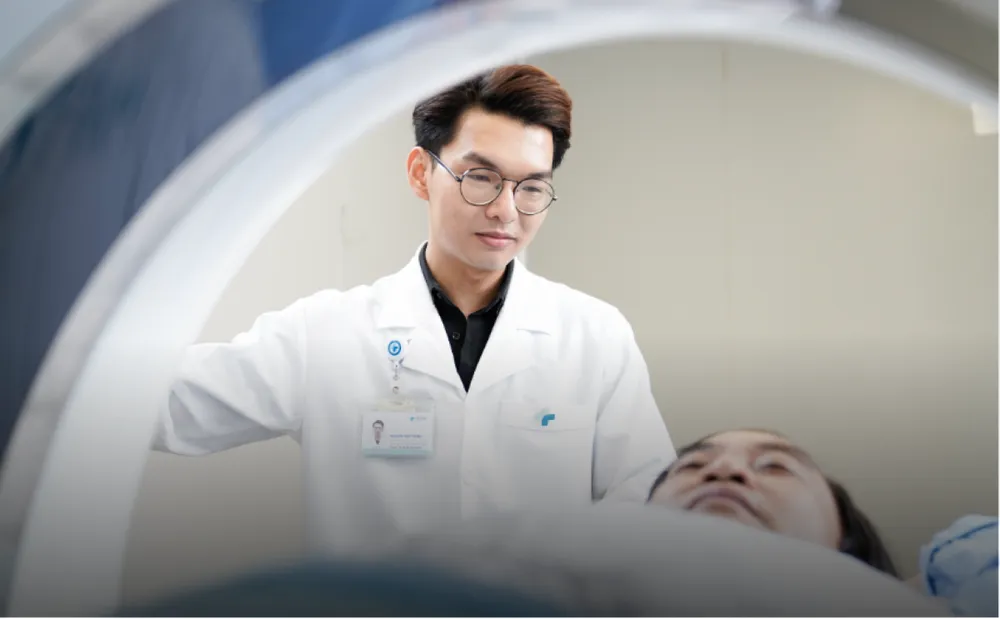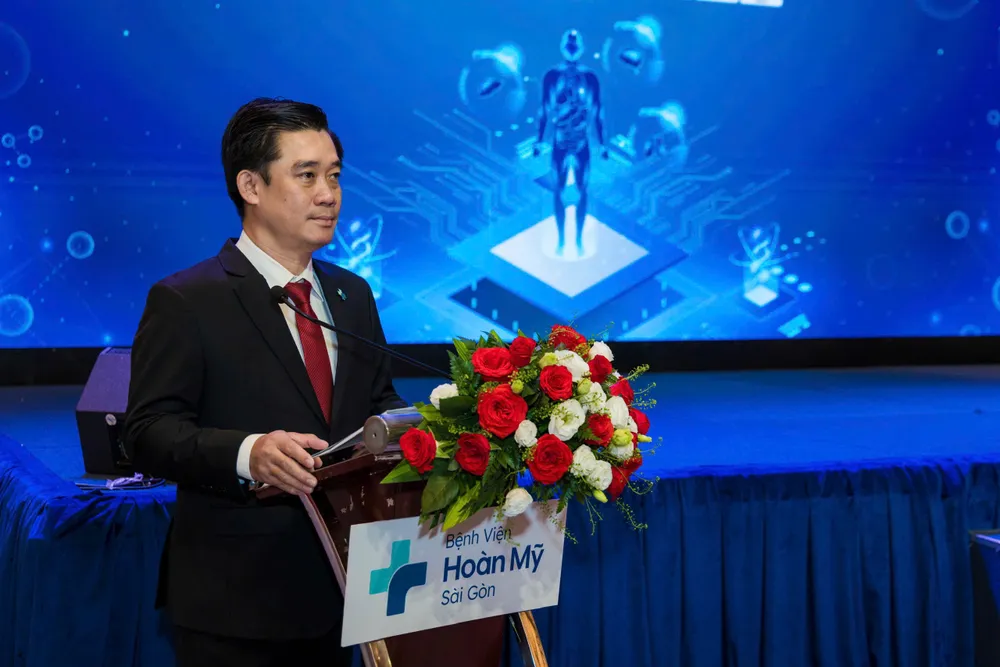This information was shared by MSc-Dr. Doan Thi Thanh Nguyet from Hoan My Saigon Hospital at the hospital's scientific conference on the theme "Comprehensive Approach and New Technologies in Modern Medicine," held on October 25th.
According to MSc-Dr. Doan Thi Thanh Nguyet, AI has demonstrated outstanding potential in many areas of cardiology. In heart failure, the PanEcho deep learning system enables automatic measurement of ejection fraction and detection of valvular heart disease with accuracy comparable to that of experts. The Mayo Clinic's AI electrocardiogram (AI ECG) algorithm detects asymptomatic left ventricular dysfunction from single-lead ECGs, opening up the possibility of remote heart failure screening.

In coronary artery disease, AI-assisted coronary heart disease diagnosis (Cleerly ISCHEMIA), approved by the US Food and Drug Administration (FDA), can quantify atherosclerotic plaques and predict myocardial ischemia. In emergency situations, the RAPIDx AI system assists in managing chest pain, improving adherence to treatment guidelines. AI also improves the detection of latent atrial fibrillation via routine ECG or wearable devices (Apple Watch, AliveCor). Furthermore, in hypertension, machine learning models enable the detection of masked hypertension, secondary hypertension, prediction of cardiovascular events, and identification of patient groups benefiting from aggressive treatment.
However, the challenges in applying AI include major barriers such as data bias, lack of evidence, limited interpretability, and the absence of a clear legal framework. Furthermore, over-reliance on AI could degrade physicians' clinical skills, while data security and patient privacy remain significant challenges.
“AI is moving towards multimodal learning models combining ECG, imaging, and genetic data to predict cardiovascular risk more accurately. FDA-approved devices, telehealth tools, and digital patient simulators promise to expand applications in internal medicine practice,” said MSc-Dr. Doan Thi Thanh Nguyet.
Also at the conference, Dr. Cao Hung Phong, Head of the Gastrointestinal Endoscopy Unit, stated that AI can help detect small lesions, polyps, or early-stage cancers that the human eye might miss. Beyond detection, AI also assists in classifying the nature of lesions, helping doctors make accurate treatment decisions. Furthermore, AI contributes to standardizing endoscopy procedures, improving image quality, shortening procedure times, and supporting the training of young professionals.
According to Dr. Nguyen Huu Thinh from the Department of Diagnostic Imaging, AI technology will automatically analyze CT images, search for and quantify lung nodules with high accuracy, and support classification according to the Lung-RADS standard (lung cancer screening system), helping to provide clear and consistent staging assessments. With the ability to directly compare images from previous and subsequent scans, the software not only allows monitoring changes in size or morphology but also automatically updates growth rate and growth index, saving doctors time, improving reliability, and allowing them to focus more on clinical decisions.
The 2025 annual scientific conference of the hospital, themed "Comprehensive Approach and New Technologies in Modern Medicine," featured presentations of 31 in-depth research topics covering many key areas such as cardiology, gastroenterology, endoscopy, orthopedics - spinal surgery, neurology - stroke, diagnostic imaging, oncology, intensive care, urology, nutrition, nursing, etc.

According to Dr. Nguyen Ngoc Bao Long, Director of Hoan My Saigon Hospital, the conference provided a multi-faceted scientific perspective, resulting from the application of medical knowledge and modern technology in the hospital's diagnostic and treatment activities.
Source: https://www.sggp.org.vn/ai-trong-y-te-van-con-nhieu-thach-thuc-post819919.html














































































































Comment (0)